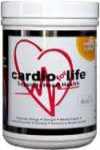|
Diet and Blood PressureYour diet and blood pressure are closely related. Ninety five percent of elevated blood pressure is what is called essential or primary hypertension. Although the exact cause of this type of hypertension is still unclear, what is known is that several modifiable lifestyle factors have a significant effect. One set of lifestyle factors that is within your control is your diet....breakfast, lunch, dinner and all those in between snacks! The food you eat is ideally meant to contain important natural chemicals and nutrients that the many different systems of your body require on a daily basis. Effectively, if your diet doesn't regularly consist of balanced nutrition then over time this will start to show up as illness, disease or dysfunction of some type in your body. If you take a look at diet and blood pressure what important facts can you take away that will help you begin to modify your daily nutrition and help to move you towards a healthier you?
Diet and High blood pressure: Modifiable known risk factors:
Your Weight Diet and blood pressure often share a relationship with weight. In almost all cases, being over weight is related to the kind of food and drink you consume everyday versus the energy you burn as you exercise. Too little exercise + Too much of the wrong type of Food and Drink = Weight Gain. Now just to be clear here; you could be lean and strong and work out with weights most days and weigh more than you did before you started working out. This is because that type of exercise replaces body fat with lean muscle...and lean muscle weighs more than fat. I'm not talking about that kind of weight gain. Unhealthy weight gain is a different matter and according to the American Heart Association many scientific studies link unhealthy weight gain with high blood pressure. What is the relationship between being overweight and your blood pressure? Well, the more body tissue (mass) that you have that requires oxygen and nutrients from your blood, the harder your heart will have to work to pump blood to that tissue mass . This can elevate your blood pressure. On a very positive note, being able to lose enough weight to reduce your blood pressure - the diet and blood pressure link, could result in not needing to take BP medication if your BP falls within a safe range. The term morbid means that there is an increase in the risk of associated health conditions occurring Body Mass Index - BMI = your weight divided by your (height squared) Try and maintain a body mass index no higher than 25.
We don't always associate alcohol use with diet - but it is a consumable food item so should be included in a discussion on diet and blood pressure. Moderate alcohol use as opposed to heavy can reduce your systolic BP by 2-4mmHg. Globally, about 16% of hypertensive disease can be attributed to alcohol use. Although alcohol consumption is associated with an increased incidence of hypertension, the exact reasons remain unclear.Also, it has been shown scientifically that drinking outside of meals appears to increase the risk of developing hypertension. Add to this that alcoholic drinks usually contain a significant amount of calories which can add to your weight gain burden.... the best advice here is...if you drink alcohol... be light to moderate with your intake.
Salt in Your Diet and Blood Pressure: So what's wrong with salt? Well, nothing is wrong with it as such...it's just the amount that many of us are exposed to in canned and prepackaged processed foods that is the problem. Regular consumption of the wrong kinds of food items can really push your daily salt intake into the stratosphere! Here is the typical American daily salt intake: Here is what is recommended: Sodium and Blood Pressure: Excessive amounts of daily salt make your tissues attract water. The wall and lining of your blood vessels expand - narrowing the diameter or lumen that the blood runs through. This has the effect of constricting blood flow and increasing your blood pressure. Your blood volume also increases as it retains more water so your heart has to work harder to pump an increased volume of blood around your body. Strongly consider halving your salt intake. Don't add salt to food during cooking and reduce or completely avoid processed foods.
Why do processed foods contain so much salt? Besides the flavoring aspect of having salt in your food, salt is added by food manufactures to help maintain shelf life. The salt actually attracts moisture out of the food and this discourages the growth of bacteria. Interestingly salt is also used in cakes and cookies to enhance the sweet flavor. I recommend that you adopt a low sodium diet with a daily intake not exceeding 2400mg or 1tsp....but ideally 1500mg or 2/3tsp. Remember to read the labels on your canned and packaged food items before you purchase them! If you eat plenty of fruits and vegetables along with nuts and whole grains, you will be taking in a range of important nutrients including potassium, calcium and magnesium. These nutrients act as a diuretic which helps your body excrete excess salt. Consider supplementation to help you out here as maintaining a balanced daily diet is not easy. Supplements can help you fill in the gap...but be warned, not all supplements are created equal.
Minerals in Your Diet and Blood Pressure: Potassium Potassium and calcium can help the blood vessels relax. Blood vessels that are not as elastic are less forgiving to the force created by your hearts left ventricle. This can increase your blood pressure. Potassium helps the body get rid of excess sodium. Fruits and vegetables are naturally low in their sodium content and high in potassium. This could be one reason why a vegetarian or predominantly vegetarian diet is associated with a lower blood pressure. Calcium Low calcium intake may be a risk factor for the development of high blood pressure. In the well known and ongoing Framingham heart study, it was shown that men who consumed higher levels of daily calcium in their diet had a twenty percent lower risk of developing elevated blood pressure than those who ate low daily amounts. Eating too little calcium appears to be associated with high blood pressure. Magnesium A deficiency in this mineral has been linked to a higher blood pressure: People who are heavy users of alcohol increase their risk high of magnesium deficiency because alcohol increases its excretion. Low levels of magnesium in your body may also increase the risk of developing abnormal heart rhythms or arrhythmias which can be a complicating factor in a heart attack. The evidence for maintaining an adequate magnesium intake to help manage high blood pressure is sufficient to put it on your list of modifiable risk factors. As is the case with most nutrients, you can't meet your daily needs for magnesium from a single food. Eating a wide variety of foods or supplementing will help to ensure you get your daily requirements. Note: When supplementing your daily mineral intake you need to look for a product that supplies its minerals from plant sources because this is how you would normally digest minerals from your food.
High Fat Diet and Blood Pressure: A diet that consists of too much of the wrong kind of fat such as Saturated fat ,Transfats and Cholesterol can lead to weight gain and the build up of plaque...narrowing the diameter of the wall of your arteries called the Lumen.
High Sugar Diet and Blood Pressure: Insulin is released into your blood stream in response to the amount of carbohydrate you consume. If your diet consists of a large daily intake of refined sugar or processed foods that contain easily digested carbohydrates your insulin levels will spike. This is called Hyperinsulinemia and the relative burden on your system is called glycemic loading. This is not just a diabetic issue. People in westernized nations on average consume very high levels of daily refined sugar and simple carbohydrates in the foods they eat. Hyperinsulinemia your diet and blood pressure: Hyperinsulinemia can cause... Garlic The use of raw garlic has a modest effect on lowering blood pressure and is thought to help relax blood vessels. Allicin is the active ingredient in garlic that actually increases in potency when it comes into contact with air....so leave your garlic sliced up on the chopping board for a few minutes before you use it. Allicin has been shown to relax the blood vessels. This reduces blood pressure which reduces damage to the walls of the blood vessels.
omega-3 fatty acids Studies of large groups of people have found that the more omega-3 fatty acids people consume, the lower their overall blood pressure level is. You can get Omega-3 fatty acids from certain kinds of fish and from supplements. Beware here. Although fish is an extremely nutritious food, it can contain unsafe levels of mercury and other contaminants as can some fish oil supplements. Eating moderate amounts of fish and finding a purified supplement is what I would advise.
The DASH diet (Dietary Approaches to Stop Hypertension) came about as a result of two studies supported by the National Heart, Lung, and Blood Institute (NHLBI) in the United States. features of the DASH diet include; The DASH Diet is reduced in red meat, sweets, and sugar-containing beverages. Combining the DASH diet with low sodium intake of no more than 1500mg / day produced significant reduction in both Diastolic and Systolic blood pressure values in people with hypertension and those with normal blood pressure. Overall, the DASH diet which included test subjects with hypertension and without produced very pleasing results. DASH Diet plus low daily sodium of 1500mg = average BP reduction of Systolic 8.9mmHg and Diastolic 4.5mmHg
There are foods that reduce blood pressure and a definite scientifically proven link between diet and blood pressure. Why not begin to make some changes today! Your body will thank you for it.
Click here to go from Diet and Blood Pressure to Coronary Heart Health Home Page
|
| Achieve Your Goal Fat loss Quickly Understand the No Gimmicks!
|
|
| Weight Control Hot Links |
| Make keeping healthy THE priority |





